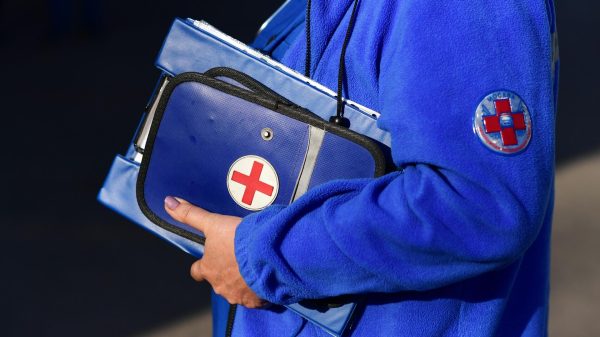The forces that shape our cultural reality, the “hidden beliefs” that try to change what we believe, usually manage to keep their machinations opaque and secretive. Of course they love it: if you're in the business of manipulating public opinion, the last thing you want is for us, the public, to find out that fact. But sometimes the mask falls off and people realize that they are being led by the nose in a certain direction.
This is why it has become common to hear people complain that television advertising reflects a parallel universe. In it we see a Britain populated seemingly exclusively by mixed-race families in which strong and confident women manage, through their all-round wonderfulness, to do the right thing despite rude and usually incompetent men. Adland's vision of Britain is a caricature of the zeitgeist. And this is made-up nonsense, which for the vast majority of British people has nothing to do with real life.
But people are getting restless. They have woken up to the fact that advertisers are not just a bastard of all sorts of things — they are also a bastard of philosophy, which falsifies reality; because most of the families in the country are not mixed, but white, and (can we say it again?) not all women are competent miracle workers. Some of them are as useless as the male characters in TV commercials.
It would be nice to think that this emerging awareness that advertising is deception will rub off on advertisers. But what can we do? I have a friend who says that when he sees these ads, he takes mental note of the product, says, «Obviously not for me,» and boycotts it, but unless it becomes an organized boycott (unlikely), nothing will change. Fantasies of advertising land are backed by the entire financial power of the system; resistance is really futile.

But the disturbing truth is that it is not just advertising that is playing in this sinister game of social engineering: television programs themselves project into our living rooms a version of reality that accurately reflects the beliefs and philosophies of the people making the programs — and their version is the vision that many of us don't share. This brings me to the latest initiative from the BBC (the mother of all “hidden persuaders”), which is going to “test” the representation of different groups and communities across a wide range of its material, to see how accurate that representation is.
In an announcement last week, the corporation said it was launching a review into “how accurately and truthfully the BBC portrays and represents different groups and communities across the UK” and that the report would look for “evidence of groupthink”.
This is not an easy task as it will cover a huge range of programs. The review, led by two industry experts, «will cover UK public television, BBC radio and online content, as well as material from countries and English regions», according to the corporation. It will cover a range of genres including drama, comedy, children's, entertainment, documentaries and news.»
It would be easy to dismiss this as just another BBC navel gazing, but let's give them the benefit of the doubt and trust that this is an honest attempt to find a cure for what some BBC people see as a serious problem; a built-in bias that colors all BBC output. When Tim Davie took over as director-general in 2020, he made restoring the BBC's «impartiality» his number one priority, so it's fair to ask now whether we can detect any improvement.
 BBC Director General Tim Davie Photo: PA
BBC Director General Tim Davie Photo: PA
Mr Davy's chosen mechanism for identifying bias is 'audits'. This is the third one; The first of them looked at BBC reports on the economy, and the second on immigration, and found shortcomings in both cases. An investigation into economic reporting has concluded that many BBC journalists lack even a basic understanding of the subject. An investigation into the Corporation's reporting on immigration found that program makers were nervous about broaching the topic for fear of being seen as anti-immigrant or damaging relationships with the community. The big question is: did these findings make any significant difference? Has the BBC improved its coverage of economics and immigration?
There is no objective answer to these questions; there is no statistical basis for a yes or no answer, so I must rely on my own subjective assessment. In terms of the economy, I think there could be some improvement; Once upon a time, during election campaigns, parties could promise anything with impunity, regardless of the costs. Not so this time: the BBC seems more willing to frame the debate in terms of what can be afforded. «Free» proposals are now routinely pounced upon, and politicians of all parties are regularly questioned about how their plans will be paid for.
This may be because the BBC has realized the previous inadequacy of its economic reporting. Whatever the reason, if I'm right, this is a positive development that has caused Labor in particular to be cautious. But immigration is another matter.
The fundamental problem is the BBC’s failure to connect the dots between immigration and other issues. We are constantly told we have a ‘housing crisis’, and so we do. But what do you expect when you add 10 million people to the population in the last 20 years? That far exceeds the country’s ability to build new homes. It is not so much a housing crisis as an immigration crisis. But the BBC never explains this obvious truth, which is a deliberate obfuscation. If the BBC’s reporting on immigration had been honest about its negative effects, successive governments would have come under greater pressure to restrict it; and we could have saved ourselves a lot of trouble. And in my opinion, the BBC’s handling of immigration issues remains both inadequate and biased.
So what are the chances that a new test of the «authenticity» of the BBC's portrayal of disparate groups will be meaningful and effective? ? I would venture to guess that it is very low. BBC drama, for example, seems to follow rigid trajectories where the characterizations are depressingly predictable: big business is always the villain, Christians are always hypocrites, women are stronger and better than men.
 London office of Stonewall, an organization that deserves a thorough investigation by the BBC. Photo: Getty
London office of Stonewall, an organization that deserves a thorough investigation by the BBC. Photo: Getty
And what's true of drama is mirrored in documentaries and comedy: it's rare indeed to see a BBC documentary that focuses on any group or individual considered to be «progressive». Wouldn't you love to see an investigation into Stonewall, which seems like an insidious and sinister organisation that holds those who don't share its aims in contempt? And wouldn't you love a comedy show that takes aim squarely at the stupidities and contradictions of eco-warriors? I think I'll have to tune in.
The BBC has chosen two people to lead this audit, both of whom come from within the broadcast industry itself: Anne Morrison has previously held a number of senior roles at the BBC and is the former chief executive of independent production company Nevision, while Chris Banatwala has extensive experience in content regulation: he is currently Works for Sky News and Channel 4 and previously for Ofcom. I think this choice is a warning sign. Sure, Morrison and Banatwala are good people, but are they capable of looking closely at BBC content? Don't they share the basic assumptions and biases of the Corporation itself?
I believe that the BBC has shaped British society to reflect the biases of its program makers, who tend to be young, left-wing and consider themselves «progressive». Over the last 60-odd years the BBC has become ever more militant in its advocacy of political correctness; he used his vast resources in a sustained propaganda campaign aimed at normalizing the new morality.
This involved «destigmatizing» a range of behaviors that previous generations had considered undesirable. Progressives set their sights on overturning what they saw as outdated taboos, and the BBC aimed to achieve this with the programme. What we see on our TV screens inevitably influences the way we think and behave, and by normalizing things like divorce, casual sex, drug taking, anything LGBTQ, profanity (the list goes on…) , they have gotten people to accept that this is «normal» — even healthy.
I'm not claiming bad faith on the part of the BBC — I think the corporation's journalists and program makers genuinely believe that this new morality is good for everyone us. If this were true, we would by now be a much happier country as the new morality worked its magic; the current growing epidemic of mental illness (which should be understood as “misfortune”) suggests otherwise.
And when Ms. Morrison and Mr. Banatvala get to work, I wonder if they will keep this in mind; that there are still, somewhere in audience-land, “resisters” who reject the new morality and would like to restore some old taboos. And I wonder if they might recommend that BBC programs try to do more to reflect some of our concerns. It would be a real revolution.


















































Свежие комментарии